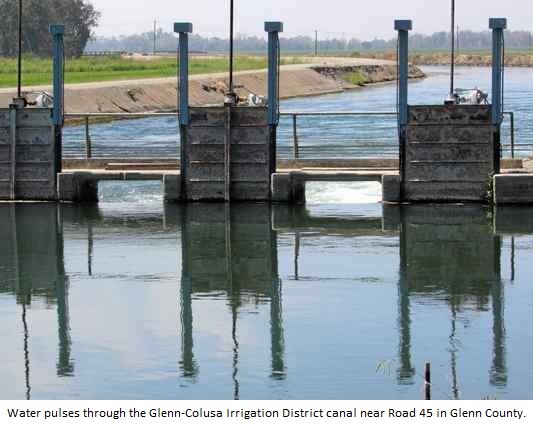by Heather Hacking, Chico Enterprise-Record, 4.9.16
Willows: Plans are off the table for now for Glenn-Colusa Irrigation District to drill five new wells as a backup water supply during dry times.
The surface water district provides water to more than 1,000 farmers in the Sacramento Valley, for a total of about 175,000 acres. The plans for the wells have been on paper for a few years, and two public meetings were held to accept public comment.
At a public meeting in Ord Bend last July, the majority of people who spoke said they were strongly against the plan for five new wells for the district, which has senior water rights along the Sacramento River. Speakers were also critical of five wells previously drilled by the district.
In August of last year, the Glenn County Board of Supervisors was knee-deep in discussions about whether to pass a moratorium on drilling new wells. The board passed a temporary ban on new wells, including any Glenn-Colusa would have planned. That well moratorium has been extended.
At the Thursday meeting of the Glenn-Colusa board members, it was made official that the idea for the new wells would be taken off the table.
Barbara Vlamis of Chico’s www.aqualliance.net believes pressure by her group and others helped dissuade Glenn-Colusa from moving ahead with the new wells.
Vlamis has been tracking operations, water transfers and future plans of the district for decades. When it came time to submit public comments she submitted 37 pages of legal arguments against the wells. The intention was that if the plans moved forward, she and other groups planned to file a lawsuit based on the California Environmental Quality Act.
Back in July 2015, the Butte County Board of Supervisors sent a letter to Glenn-Colusa, voicing concerns about whether those wells could impact groundwater levels in Butte County, just across the river.
“The county is concerned about the use of the wells for other purposes, such as a future groundwater substitution water transfers, which would move groundwater outside of the region,” the letter stated, among other concerns.
Glenn-Colusa leaders said the wells were not intended for transfers, but would be used to help growers when there were water shortages and to help reduce Sacramento River diversions when river water was needed for migrating fish, among other benefits.
This week the district decided at its board meeting to put the plans for the wells on the back burner.
This will leave more time to work on a water resource plan, said Glenn-Colusa manager Thad Bettner.
Many water issues are happening simultaneously, including ongoing issues facing water supply and fish populations and questions of secure water supply.
Having a water resource plan will put the water district in better position for the Groundwater Sustainability Act, which requires regional planning for groundwater use, Bettner said.
Glenn-Colusa will be working with Sacramento Valley cities and other water groups when state-mandated new groundwater programs are established over the next several years.
“We still see that the wells are necessary,” Bettner said.
The plans that have been developed so far can be picked up in the future, he said.
With more water in Lake Shasta, and other water issues very prevalent, Bettner said the board decided to work on issues that have risen to the top of the stack.
Vlamis said she believes the recent decision has more to do with “overwhelming public opposition” to the idea for the new wells.
“There were significant players lining up to litigate because there were major holes in the project.”
She called the backtrack on the plans a “success under CEQA.”
Contact reporter Heather Hacking at 896-7758.